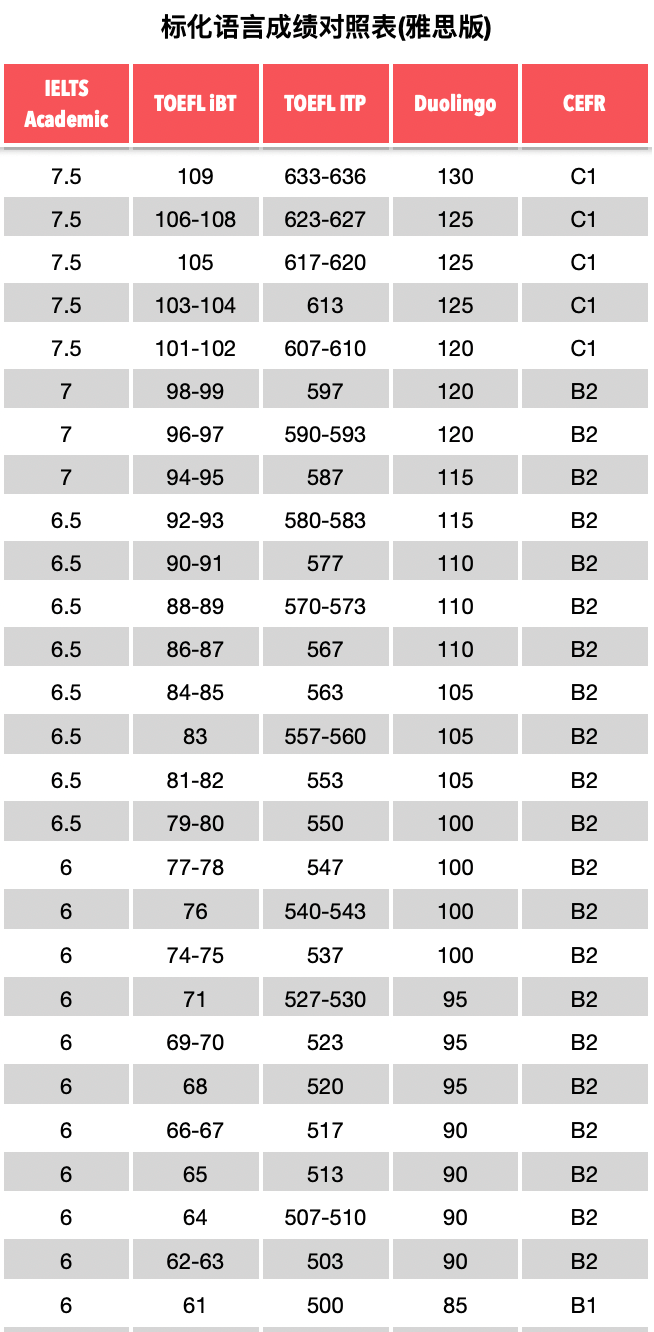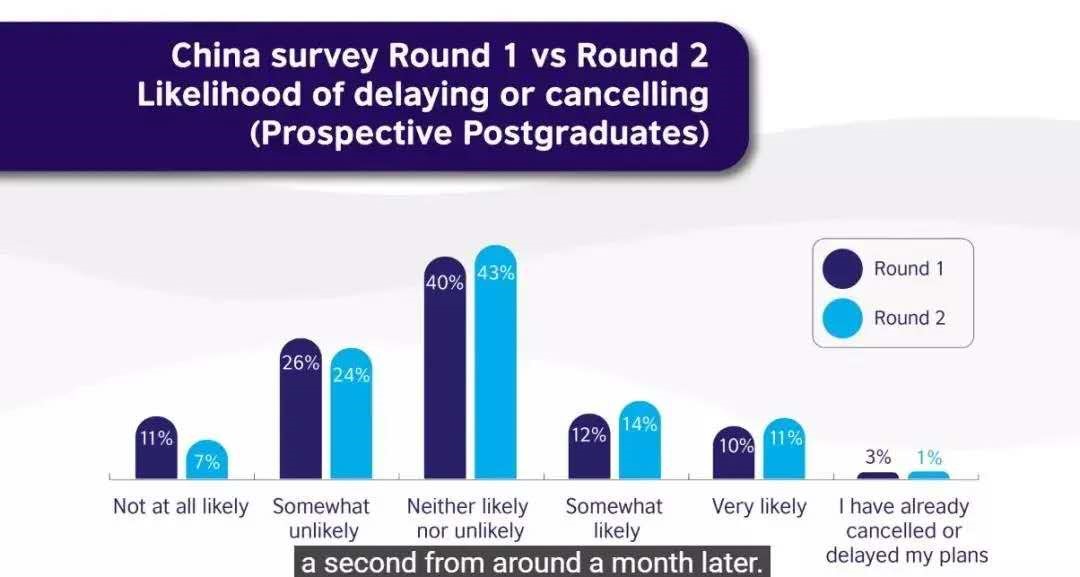雅思听力的提高是一个长期的过程,想拿高分也不是那么容易的。今天小编给大家带来雅思听力中的高频句子汇总,希望能够帮助到大家,下面小编就和大家分享,来欣赏一下吧。
【干货分享】雅思听力中的高频句子汇总
1. It’s too bad Mr. Nelson’s son couldn’t have found a more comfortable apartment to live in.
真是太糟糕了,纳尔逊的儿子找不到一个舒适点的公寓住。
2. Although groceries were high, the family managed to get by on sixty dollars a week.
尽管食品价格很高,全家人设法靠每周60美元勉强过得去。
3. Mary thought that the dress would fit, but she had to exchange it later.
马利原以为衣服会合适,但后来又不得不去换。
4. The workers are threatening to go on strike unless the company raises the hourly wage.
工人们威胁要继续罢工,除非公司提高工资。
5. Slightly more than 25 percent of the students in the class come from Spanish-speaking countries.
班上略微多于百分之二十五的学生来自说西班牙语的国家。
6. When the pianist had finished, the audience stood up and gave him a hand.
钢琴家演奏完毕之后,观众纷纷站起来与他握手。
7. Jennifer is allergic to seafood, so I’ll have to change my menu for Saturday night.
杰尼佛对海物过敏,所以我不得不改变星期六晚上的菜谱。
8. The court found the man innocent of murdering his wife.
法院认定该男子没有杀害妻子,判他无罪。
9. The contractor advised the couple not to paint their house until the weather warmed up a little.
承包商建议这夫妻俩等天气稍微暖和点时再刷房子。
10.Having submitted its report, the committee adjourned until the next meeting.
委员会递交了报告后便休会了,一直到下次会议。
以上就是小站整理的一些在雅思听力考试中比较高频率出现的句子,仅供大家在雅思听力中从参考使用。
雅思听力中的生词应当如何解决
在雅思听力考试中,很多时候是需要我们填写所听到的单词的。复习听力,对这些常考单词的总结是非常有必要的。那么雅思听力中的生词怎么处理?我们又该如何练习呢?
每天听一个section,边听边做
这 里介绍一种方法,如果同学们能把它贯彻下去,你们的雅思听力水平将不仅仅局限于雅思6分或者7分的水平,训练一段时间,你的听力将有一个非常大的飞跃。这 个方法就是DICTATION。所谓DICTATION,即所听即所写。有些老师会跟同学们说:“你要买这个书,买那个书。多听听多做练习就听懂了。”可很多人就是听不懂。我们这样想,如果有个老外天天在你旁边说一种你听不懂的语言,没人给你翻译,你就是听10年也还是听不懂啊。所以,又到了发挥我们剑4-剑7的功能的时候了。这时候学生一定要进行剑桥雅思听力下载,其实不多,你每天只听一个section,听的同时,你要做一件事,不是做题,而是做听写,把你听到的内容一字不落地写下来。
对于练习听力用dictation的方法,听一句写一句或者听一篇一起写都可以,只是后者的话,个人觉得难度更大。听一句,听的时候尽量能写多少写多少, 把没写出来的单词空出来。然后再听一遍这个句子,再写,再听再写,直到怎么听也写不出来了为止。就这样,把整篇文章都听写下来。文章来源就用剑4-6的就 可以了,剑7可以留到最后一个月做模拟题用。雅思听力机经词汇也就有一定的积累成果了。雅思听力在线练习能够有效的帮助大家备考,同学们最好在总结一下雅思听力高频词汇。
雅思听力标记不熟悉的单词
听写完整篇文章以后,再与书后面的雅思听力原文对照,把你写错的地方用红笔标出来,然后分析错误原因并分类总结——哪些是你听懂了也认识,却拼写错了的词;哪些是因为自己发音不 对,本来认识但没听出来的词;哪些是你根本就不认识,也没听说过的单词。把这些单词都一一挑出来,仔细背诵。其实听力中并不会出现特别难的单词,当你掌握 了单词正确的发音和拼写后,对于雅思口语和写作也都是很有帮助的。那些经常一拼就错的,或者答案中要求填写的单词却拼写错误的,都是最值得注意的单词。这 些单词积少成多,也就是你听力的单词库了,这样就可以避免在考试中出现相同的错误了。
总而言之,雅思词汇是非常重要的,通过雅思听力机经词汇的掌握,可以更有针对性的备考,可以帮助学生在成绩上进行一个质的飞越。
雅思听力中的关键词后置现象如何处理
雅思听力关键词后置1. 前置定语结构
前置定语在考题中出现的形式为“n. ______” 和 “adj. _______”, 即在填空前出现名词或形容词的关键词。
在录音中则经常通过修辞结构和句子结构的改变,将关键词后置。
例1:Cambridge 6 Test 2 Section 3 Question 21
--Read IT ___________.
录音:look through catalogues specialised in IT.
解析:通过修辞结构的改变,把名词前置定语变成分词后置定语,完成关键词后置。
例2:Cambridge 5 Test 3 Section 3 Question 30
--Excellent ___________.
录音:F: OK, any other comments?
M: I thought student support was excellent.
解析:通过句子结构的改变,完成关键词后置。
例3:Cambridge 6 Test 1 Section 3 Question 24
--Reduced ___________ for students.
录音:students pay an annual fee that’s much less than the general public pay.
解析:通过修辞结构的改变,把形容词前置定语变成从句后置定语,完成关键词后置,同时伴随reduced的同意转换。
雅思听力关键词后置2. 后置定语结构
后置定语在考题中出现的形式为“n. prep. ______” 和 “n. p. _______”, 即在填空前出现关键词如“名词-介词(如of, for, about, in, on, etc.)”或“名词-分词”。
在录音中则经常通过修辞结构和句子结构的改变,将名词关键词后置。
例1:Cambridge 6 Test 4 Section 2 Question 15
--Will explain about arrangement for ______________ and fire exits.
录音:He will also go through the security arrangement with you and show you the fire exits.
解析:通过修辞结构的改变,把介词短语后置定语变成名词前置定语,完成关键词后置。
例2:Cambridge 6 Test 2 Section 3 Question 22
--Spoken to Jane Prince
Head of the _____________.
录音:F: Jane Prince, do you know her? She’s in the Computer Centre.
M: Yes, of course, she is the new head.
解析:通过句子结构的改变,完成关键词后置。
例3: Cambridge 6 Test 1 Section 4 Question 32
--New technology allowed the production of goods made of ________ and ________
录音:The technology they introduced meant that metal and leather goods were produced there for the first time.
解析:通过修辞结构的改变,把分词后置定语变成名词前置定语,完成关键词后置。
小结:
1和2类关键词后置通常出现于Section2-4的大表格填空中。
考生须要在读题时事先判断易出现关键词后置的题目,并且对答案进行预测;而后在听题时利用预测捕捉答案,后置的关键词起确认答案的作用。
因此在平时的学习中要熟悉听力题目中常见的容易出现关键词后置的结构,培养视觉敏感度;并且熟练掌握语法上定语结构的转换。
雅思听力关键词后置3. 主谓宾结构
主谓宾在考题中出现的形式为“subj. pred. __________”, 即在填空前出现名词(主语)和动词(谓语)的关键词。
在录音中则经常通过主语和宾语位置的调换,以及谓语主动被动之间的转换,或者其它句式变化,将名词关键词后置。
例1:Cambridge 6 Test 2 Section 2 Question 11 & 12
--Local services depart from _____________ railway station.
--National services depart from _____________ railway station.
录音:F: We’ve got two main train stations in the town. The King Street is for local commute lines and regional services.
M: What about trains to London? I’ll need to go there on business for one day.
F: Then you need to go to central station, that’s for all the national services.
解析:Q11通过主语宾语的位置调换,Q12通过句型转换,完成关键词后置。
例2:Cambridge 6 Test 2 Section 2 Question 14
--The price of a first class ticket includes ____________.
录音:There’s a buffet car, though refreshments are included in the cost of a first class ticket.
解析:通过主语宾语的位置调换,完成关键词后置,伴随price-cost的同意转换。
例3:Cambridge 6 Test 2 Section 4 Question 38
--The first motion picture was called The__________________.
录音:So now, there was a real possibility of having films of more than two or three minutes, and this lead to the making of The Great Train Robbery, the very first movie made.
解析:通过句型转换,完成关键词后置,伴随motion picture-movie的同意转换。
雅思听力关键词后置4. 从句结构
从句在考题中出现的形式为“……. conj. ________”, 即在填空前出现从句连接词(如when, where, because, as, if, etc.)。
在录音中则通过调换连接词前后分句的次序,将填空前的关键词后置。
例1:Cambridge 5 Test 1 Section 4 Question 36 & 37
--Research indicates that many women only think about their financial future when a ________ occurs.
--It is best for women to start thinking about pensions when they are in their _______.
录音:The research indicates that at present for women it takes a crisis to make them think about their future financial situation. But of course this is the very worst time for anyone to make any important decisions. Women today need to look ahead, think ahead, not wait until they’re under pressure. Even women in their early twenties, need to think about pensions for example.
解析:通过调换从句中两个分句的位置,完成关键词后置。
例2:Cambridge 6 Test 4 Section 4 Question 40
--In ancient India a man would fight a lion as a test of _____________.
录音:In ancient India, one of the greatest tests of leadership for a man was to fight a lion.
解析:通过调换从句中两个分句的位置,完成关键词后置。
3和4类关键词后置通常出现于Section2-4的句子填空中。
考生须要在读题时事先判断易出现关键词后置的题目,并且对答案进行预测;而后在听题时利用预测捕捉答案,后置的关键词起确认答案的作用。
因此在平时的学习中要熟悉听力题目中常见的容易出现雅思听力关键词后置,培养视觉敏感度;并且熟练掌握语法上主谓宾结构和从句结构的转换。
雅思听力中的高频句子汇总
上一篇:新雅思听力考试流程全说明
下一篇:雅思听力备考技巧之3步走识破答案






